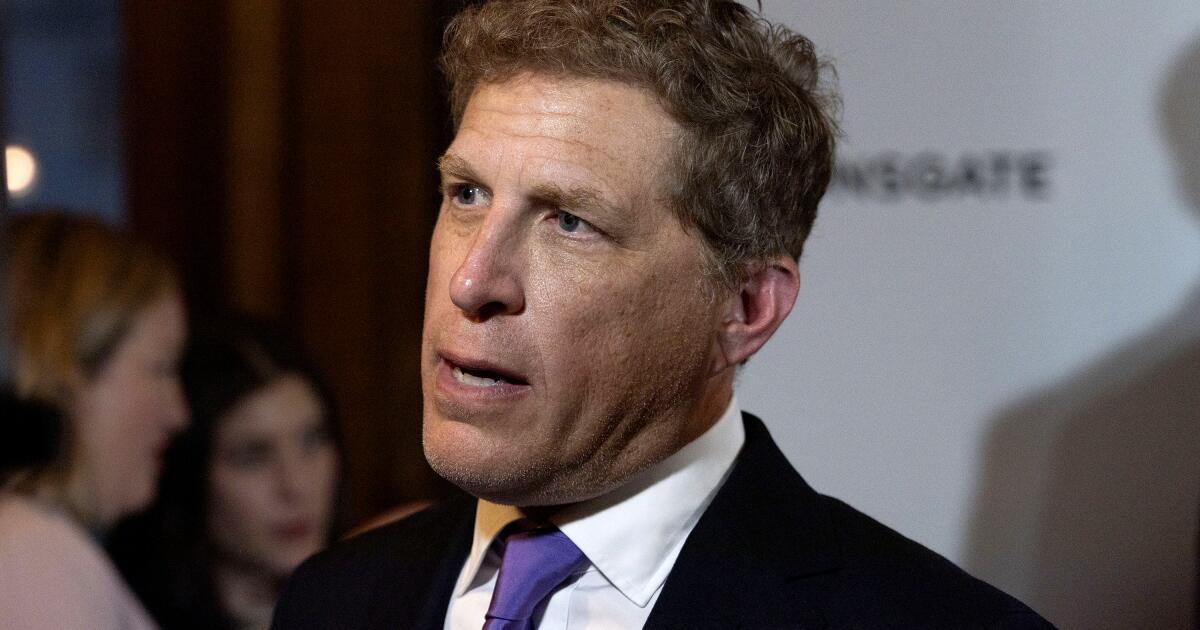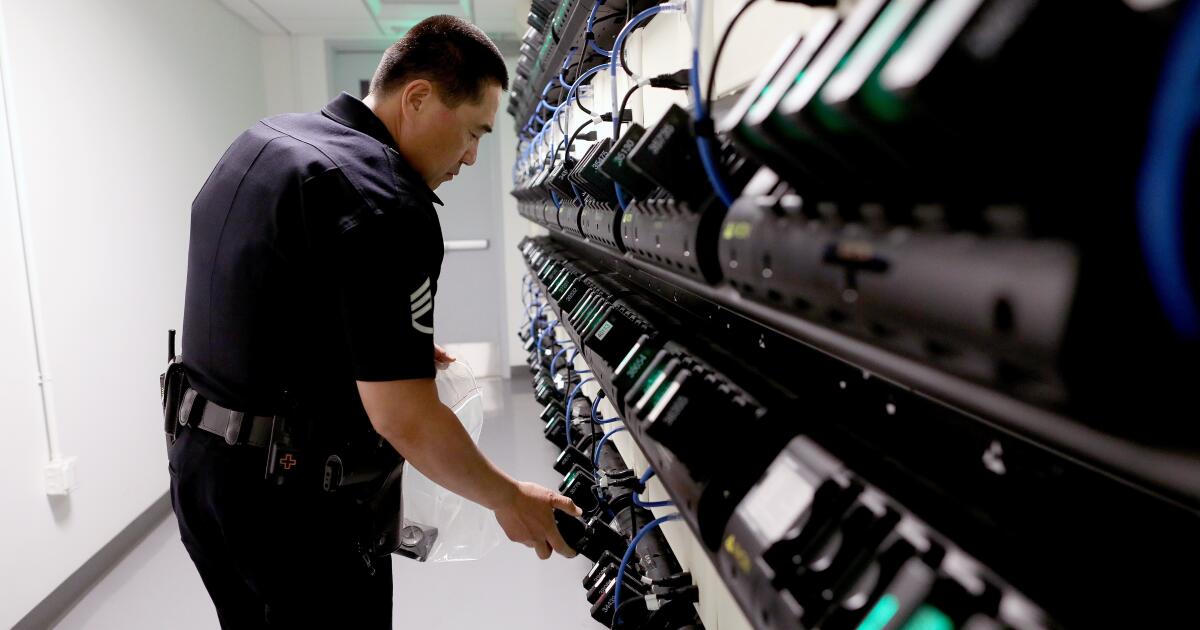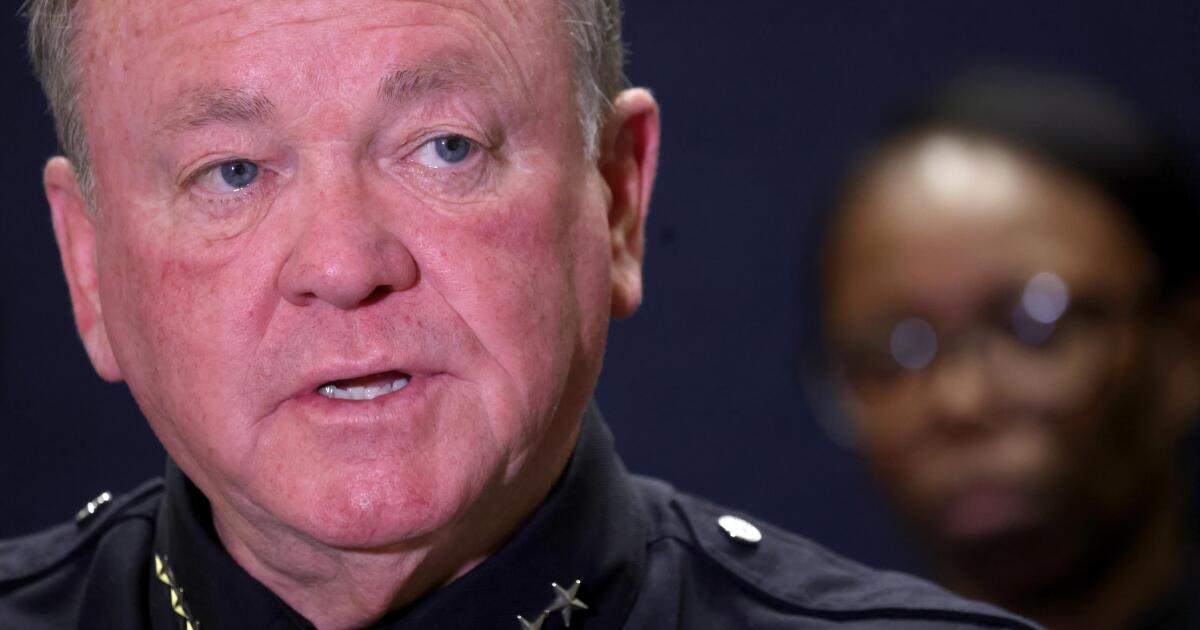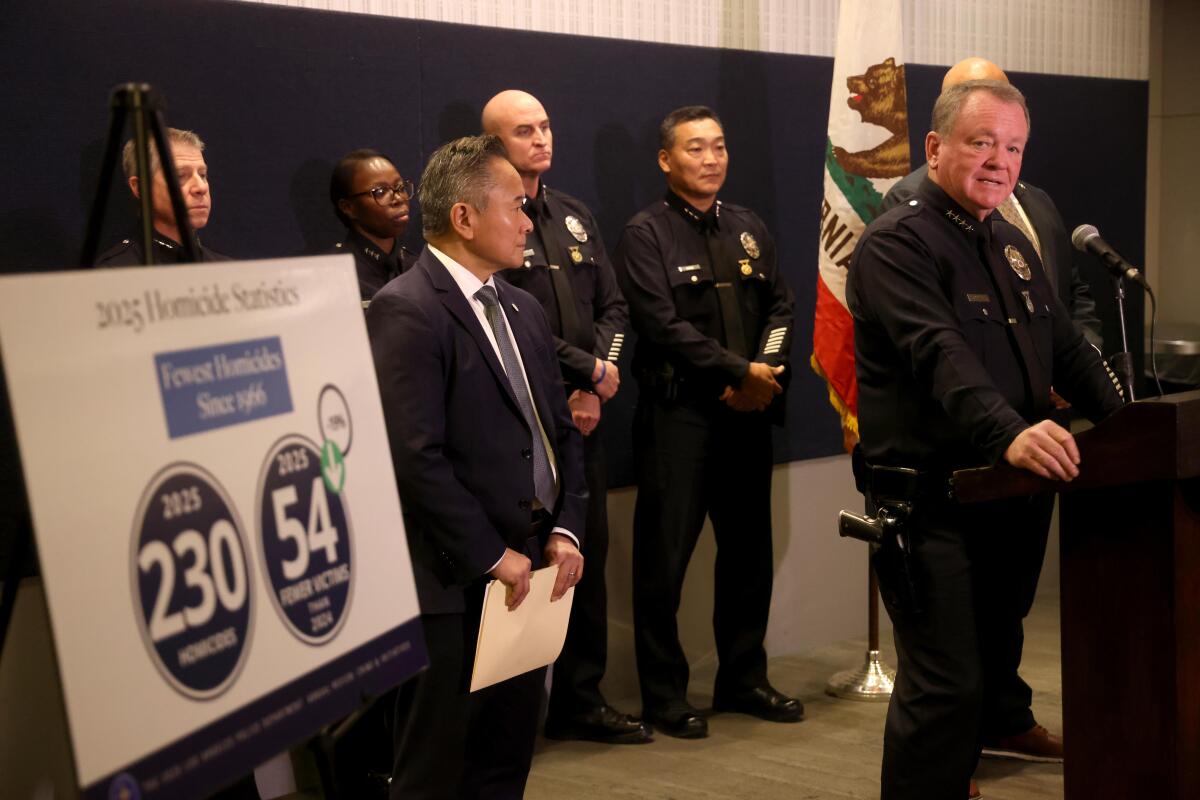Secrecy surrounds hiring of LAPD messaging guru with Hollywood resume
Last year, LAPD leaders quietly brought on a temporary consultant to advise on how to give the department’s battered public image a spit shine.
In a proposal reviewed by The Times, the consultant wrote that the LAPD’s standing as “one of the most prominent and visible law enforcement agencies in the world” was on the line.
The name of the person offering to help chart the path forward was not mentioned when the contract went before the Police Commission for approval. Nor did it come up Feb 3. when, after a heated debate, the City Council approved the creation of a new LAPD communications strategist role with an annual salary of $191,000.
LAPD Deputy Chief Jonathan Pinto, head of the Human Resources Bureau, acknowledged under questioning from council members that the department already had someone in mind for the role — but declined to say who.
Numerous department sources, who were not authorized to speak publicly about the confidential personnel matter, identified the candidate as the consultant: Robert Port, a filmmaker, writer and director who has worked for decades in Hollywood.
Port declined to comment, as did an LAPD spokesperson.
Winner of a 2003 Academy Award for his documentary short “Twin Towers,” about a pair of brothers — a policeman and a fireman — who responded to the World Trade Center on 9/11, Port has served as an executive producer or written for shows ranging from Amazon Prime’s “Jack Ryan” to “Numb3rs” on CBS.
A biography attached to his consulting proposal says he has been a reserve Los Angeles County sheriff’s deputy for the last decade. His ties to LAPD Chief Jim McDonnell and the city’s former top cop, William Bratton, date back years through shared East Coast roots.
In his consulting proposal, Port said he would “outline a forward-looking plan that strengthens messaging, builds trust, supports officer morale, and protects the LAPD’s image as the most professional and polished agency in the country.”
“In other words, let’s bring some luster back to the badge!” he wrote.
But the secrecy around Port’s hiring has already triggered fresh criticism, along with questions about whether the LAPD — which already has multiple officers working in its press shop — really needs more help communicating.
During the City Council hearing last week, Pinto said the department’s press shop would continue focusing on dealing with outside media inquiries, but that the new civil service-exempt role would draft “comprehensive integrated communication plans.”
Reporting directly to McDonnell, the position would allow the department to present a clear, unified message to the agency’s 8,700-some officers, said Pinto, while building “brand awareness” and boosting recruitment.
Several council members questioned how the new position might influence the LAPD’s messaging, noting that McDonnell has been out of lockstep with city leaders on issues such as the response to federal immigration enforcement and the use of force against protesters.
Others on the council pressed Pinto about what they saw as a lack of clarity on the job description.
“If we’ve got nothing to hide, then we shouldn’t be acting like we have something to hide,” said Councilmember Monica Rodriguez, adding that she was uncomfortable approving such a high salary given the city’s financial straits and the possibility of other civilian employees being furloughed.
The council eventually voted 10 to 5 to approve the position.
Port has kept a relatively low public profile since he started his consulting work last fall, mostly operating behind the scenes. Images posted on social media showed him walking around the crime scene at the Brentwood home of Rob Reiner, where authorities say the filmmaker and his wife were murdered by their son in December.
In his consulting proposal, Port cited conversations with McDonnell, Assistant Chief Dominic Choi and other department leaders in which they “emphasized the need for outside expertise in shaping the department’s image, both within the organization and to the public in all aspects of communication, video, and media.”
Among his proposals was to create a more “centralized” social media strategy rather than continuing to let the LAPD’s 21 stations spread across the city each handle their own online accounts.
“The goal is to maintain strong community engagement while also giving the LAPD a single, recognizable voice across all platforms and portraying its positive messaging to fellow Angelians.”
For decades, Hollywood helped sell the LAPD’s nationwide image as the epitome of professional law enforcement with shows such as “Dragnet,” “Adam-12” and “T.J. Hooker.” Today, Port said, that relationship was “less structured.” Using his industry background, he said, he could help the department better vet proposals, including a recent pitch from a major production company for a “ride-along”-style reality series.
He also suggested that he could advise a public relations firm previously hired by the LAPD to overhaul its marketing strategy. “Port’s experience in storytelling and award-winning creative expertise in advertising enable him to review these materials with a critical eye,” the proposal said.
Port’s four-month media consulting contract was paid for by a $20,000 donation from the Police Foundation, a nonprofit group that raises funds for LAPD equipment and offers other forms of support. The paperwork around the donation did not include Port’s name but said that the money would go to pay for a consultant “to develop forward-looking, integrated communications plan that strengthens messaging, builds trust, and supports officer morale.”
Then-Commissioner Erroll Southers voted against the contract, saying at the time he was uncomfortable with the department’s unwillingness to share details about the position — even with its civilian bosses.
The decision to try to bring on Port marks the latest shakeup of the department’s press office. The unit has had four different police captains in as many years, and the chief civilian spokesperson job has been vacant since the abrupt resignation of Jennifer Forkish last October.




